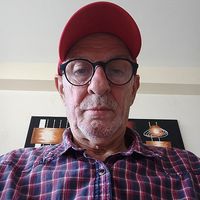
My involvement in political activism as a member of the Socialist Workers Party, the Venezuela branch of 4th. Socialist International was limited to my youth as an engineering student in Venezuela’s USB in the late 1970s. However, it was enough to influence forever my vision of historical events and the focus of all my actions and decisions in my personal and professional life.
I consider it a fortunate fact to meet Peter Camejo, born in New York, son of Daniel Camejo Octavio, a Venezuelan businessman and entrepreneur. This led me to the discovery of a revolutionary school of thought opposed to Stalinism from the USSR, so widespread throughout the world, as the dominant ideological framework of progressive thinking around the World as well as the official platform of countries like China, Cuba, and North Korea. In one section of the book, I explain why and how Stalinism managed to infiltrate the ruling oligarchies of third-world countries of Latin America and Africa, including Venezuela.
Peter Camejo played a major role in American politics as Ralph Nader's running mate in the 2004 presidential election, and also in his bid to become governor of California running against Arnold Schwarzenegger.
Despite my technical curricula, I always felt the urge for literature and history being an avid reader of writers such as Alexander Pushkin, Fyodor Dostoyevsky, Leon Tolstoi, and Albert Camus, becoming particularly influenced by Jack London's Iron Heel and his particular interpretation of Marxism reconciled with Friedrich Nietzsche philosophy. It was London that inspired George Orwell's novel 1984.
After graduating as an engineer from USB in Caracas and an MBA from EMU in Michigan, USA I worked in the oil and gas business between 1982 and 2002, starting at PDVSA, the Venezuelan state-owned corporation, and moving later to Shell Oil; meaning, the Royal Dutch Shell. I learned the secrets of oil geopolitics from the inside developing a hands-on knowledge of international trade of petroleum products as well as the economics of production, well-drilling, and refining.
As part of my job, I dealt constantly with government officials and principals of the private sector. Shell had a 20% stake in Quimica Venoco, whose dominant shareholder was Julio Sosa Rodriguez, the finance minister who handled the banking crisis of 1994 during the Rafael Caldera Administration, an outcome that's covered extensively in the book. At the time, JSR was deemed the most influential oligarch in the country, a former Venezuelan ambassador to Washington and landlord of the US Embassy site in Caracas. Pedro Carmona Estanga, the infamous one-day president during the coup d'etat of April 2002, with whom I had a personal relationship, was the general manager of Quimica Venoco and a trustee of JSR.